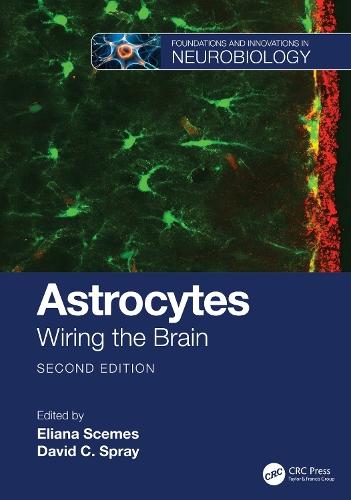Overview
This is a second edition of a book that provides an overview of the most current findings on the diverse roles played by astrocytes in the function and dysfunction of the central nervous system (CNS), with emphasis on their cellular connections. Astrocytes are highly elaborated cells and likely the only neural cells that simultaneously establish associations with different cellular types. The fine processes of astrocytes are found in practically all nearby cellular types in the CNS, including astrocytes themselves, neurons, oligodendrocytes, microglia, and brain endothelial cells. Such close morphological associations, together with the fact that astrocytes express a multitude of ion channels, transporters, and membrane receptors, endow these cells with the unique capability to sense and influence diverse CNS functions. Disruption of these elaborated connections and altered astrocyte polarization are implicated in numerous pathological conditions, such as epilepsy, stroke, leukodystrophies, Alzheimer’s, and autism, and also certain psychiatric disorders, major depression, and schizophrenia.
Full Product Details
Author: Eliana Scemes (Albert Einstein College of Medicine, Bronx, New York, USA) ,
David C. Spray (Albert Einstein College of Medicine, Bronx, New York, USA)
Publisher: Taylor & Francis Ltd
Imprint: CRC Press
Edition: 2nd edition
Weight: 0.710kg
ISBN: 9781032756165
ISBN 10: 1032756160
Pages: 284
Publication Date: 25 November 2025
Audience:
College/higher education
,
Professional and scholarly
,
Postgraduate, Research & Scholarly
,
Professional & Vocational
Format: Hardback
Publisher's Status: Forthcoming
Availability: Not yet available

This item is yet to be released. You can pre-order this item and we will dispatch it to you upon its release.
Author Information
Dr. Eliana Scemes is a professor at New York Medical College. She obtained her Ph.D. in general physiology from the University of Sao Paulo, Brazil, and obtained further postdoctoral training in neurobiology in Brazil and in neuroscience at Albert Einstein College of Medicine. Her research has made significant contributions to the understanding of astrocyte biology, focusing on gap junction proteins (connexins and pannexins) and their impact on CNS physiopathology. She has contributed over 100 publications, with an h-index of 49, in the form of research and review articles and book chapters, and has been a member of numerous professional societies and the editorial board member of many scientific journals. Dr. David C. Spray is a professor in the Dominick P. Purpura Department of Neuroscience and Department of Medicine at Albert Einstein College of Medicine and an adjunct professor of biomedical engineering at the City College of New York. His Ph.D. in physiology at the University of Florida College of Medicine, supported by one of the first Centers for Neuroscience, dealt with transduction properties of peripheral sensory neurons. As a Grass Foundation Fellow and for more than a dozen years afterward, he spent summers doing research at the Marine Biological Laboratory in Woods Hole, MA. His primary research focus has been on gap junctions, where current research of the laboratory focuses on neuron–glial interactions in peripheral ganglia associated with several models of chronic pain and gap junction control of the blood–brain barrier at the astrocyte endfeet. Dr. Spray has published about 500 papers, with an h-index >100, and with Dr. Scemes, he has co-authored more than 50 original articles and reviews, primarily dealing with gap junctions and astrocytes. He has served on NIH study sections, including Molecular and Cellular Biology of Glia, which he chaired, and is on the editorial boards of numerous journals, including Glia.



